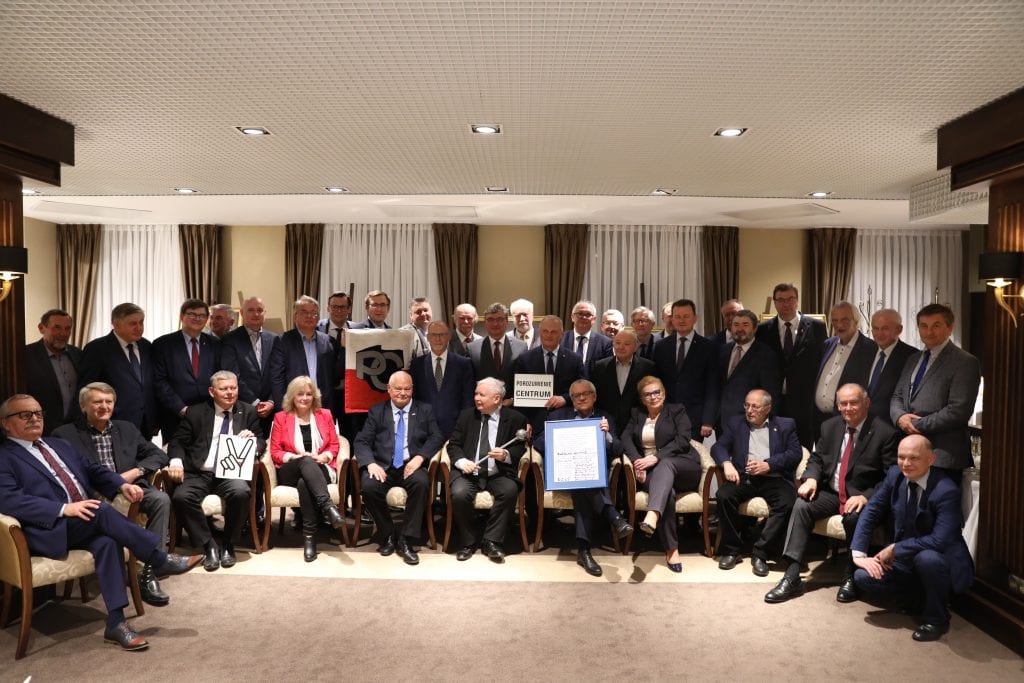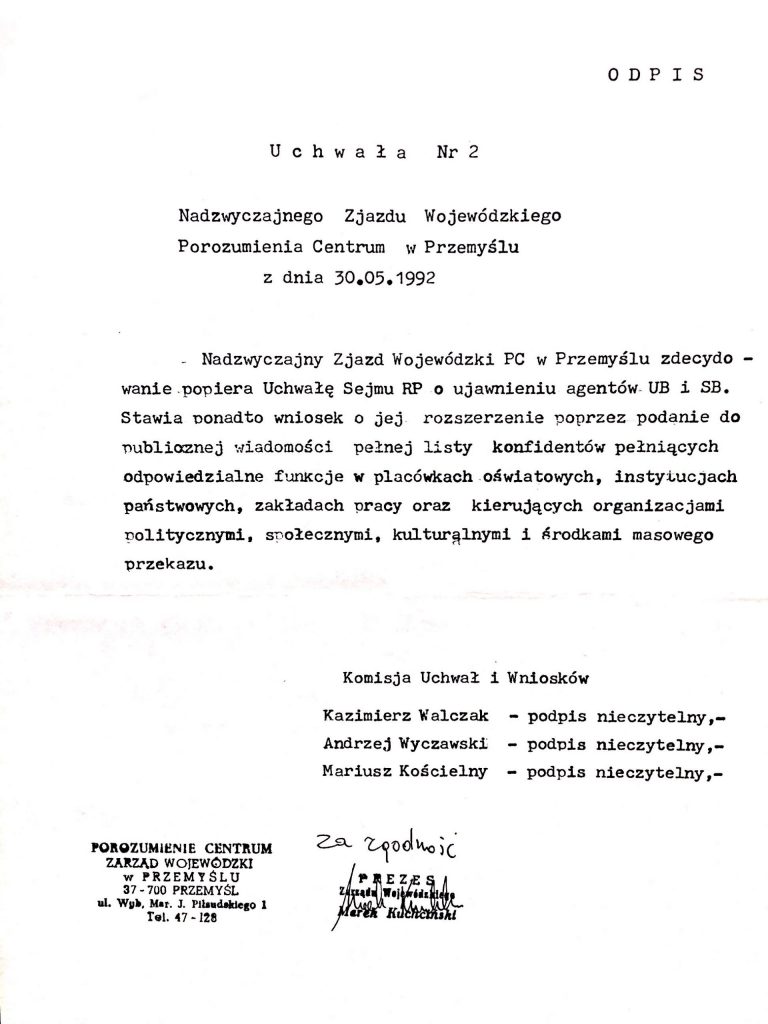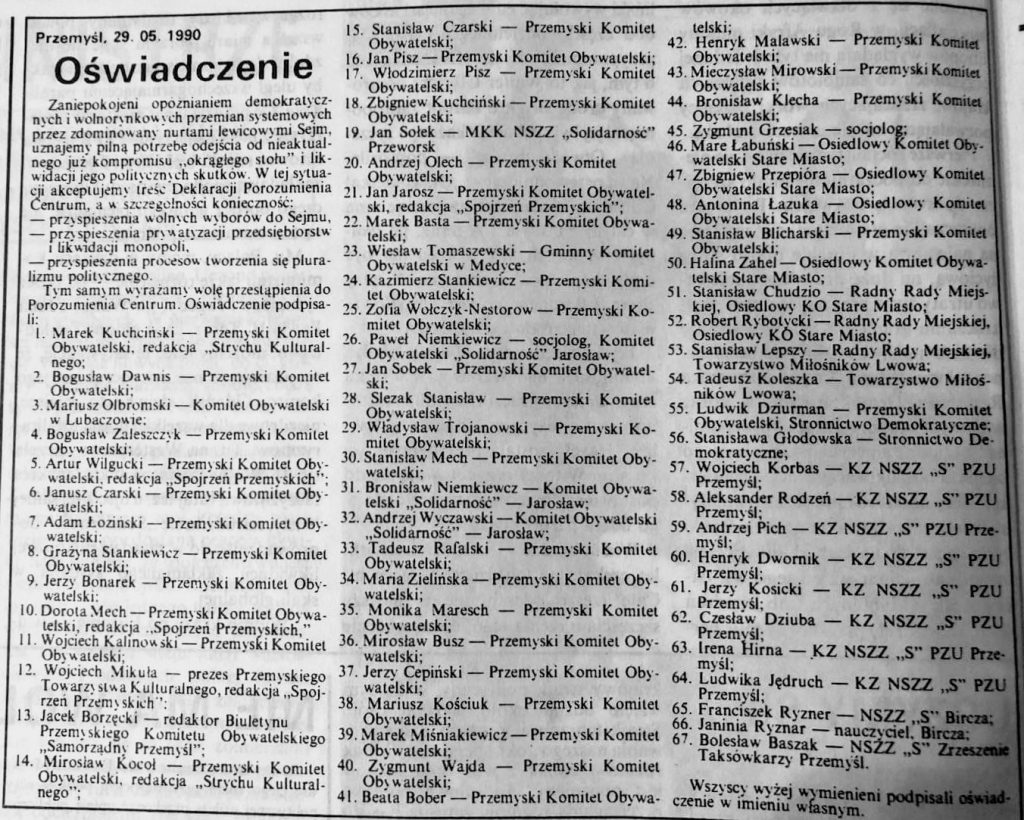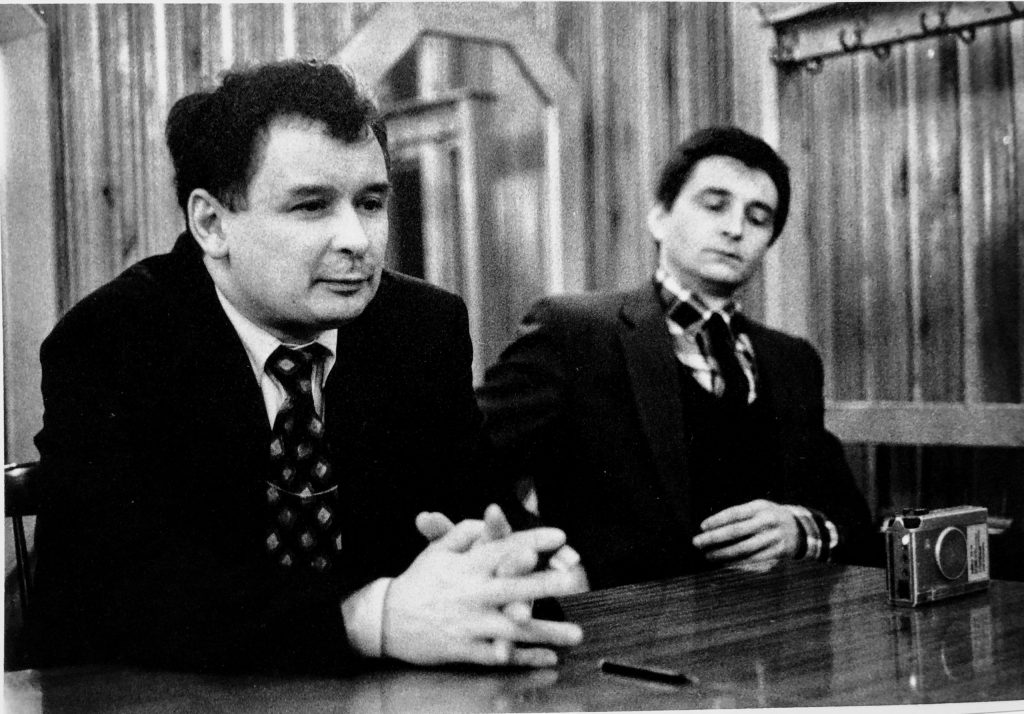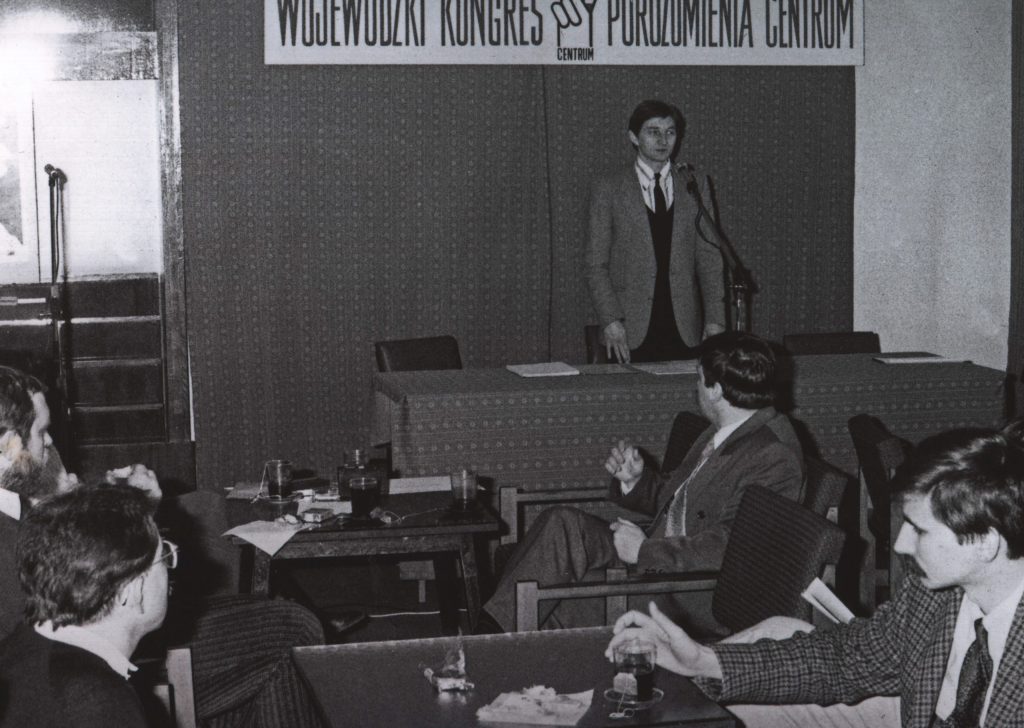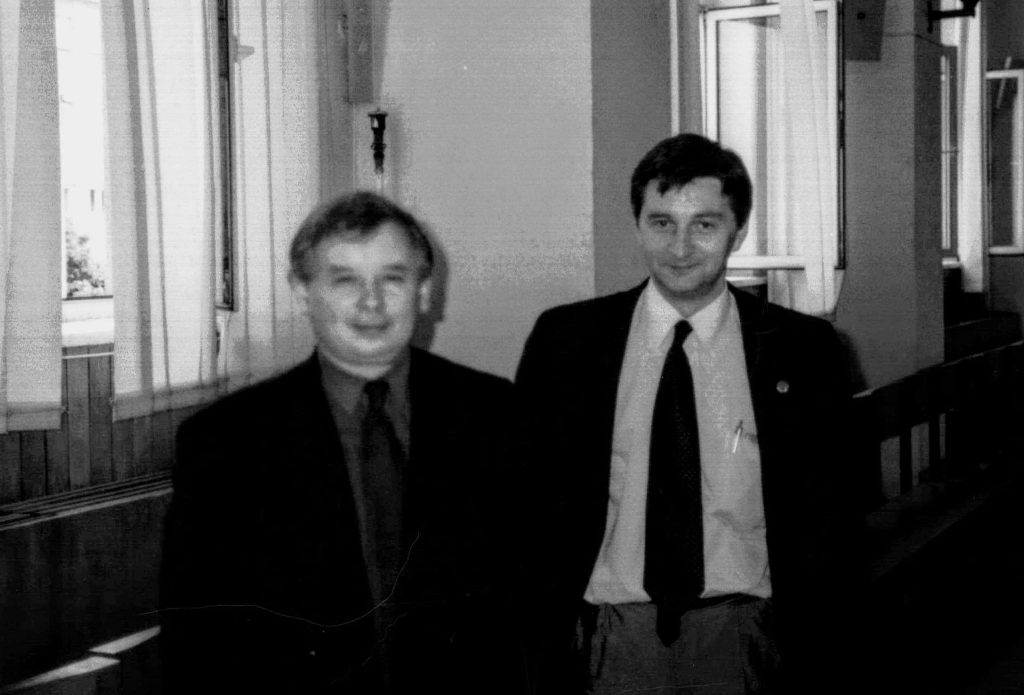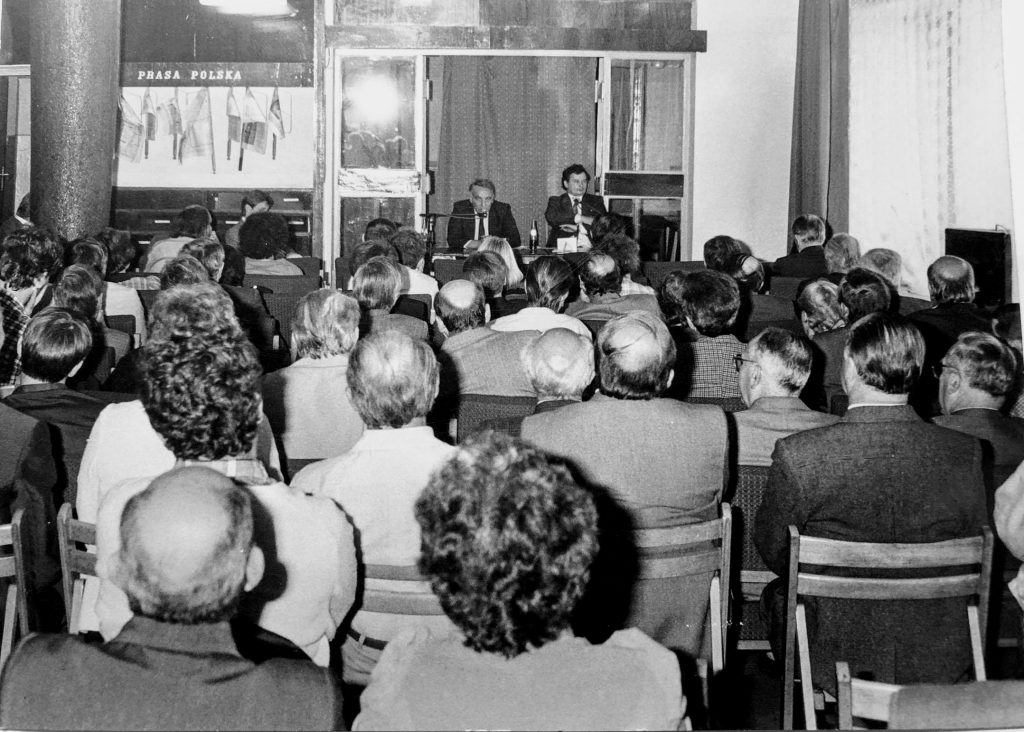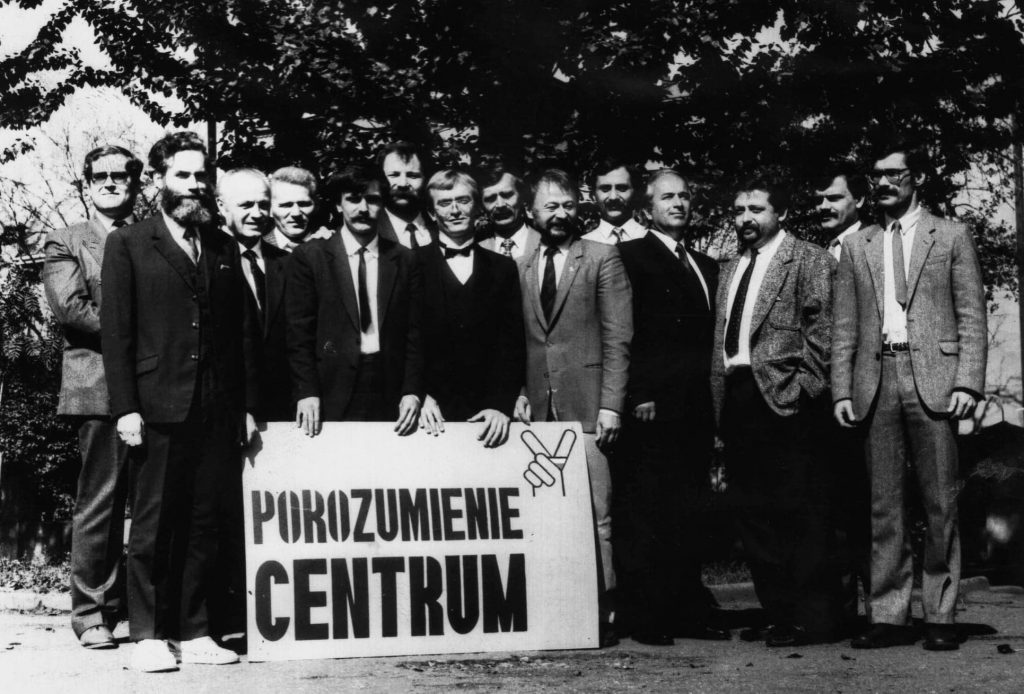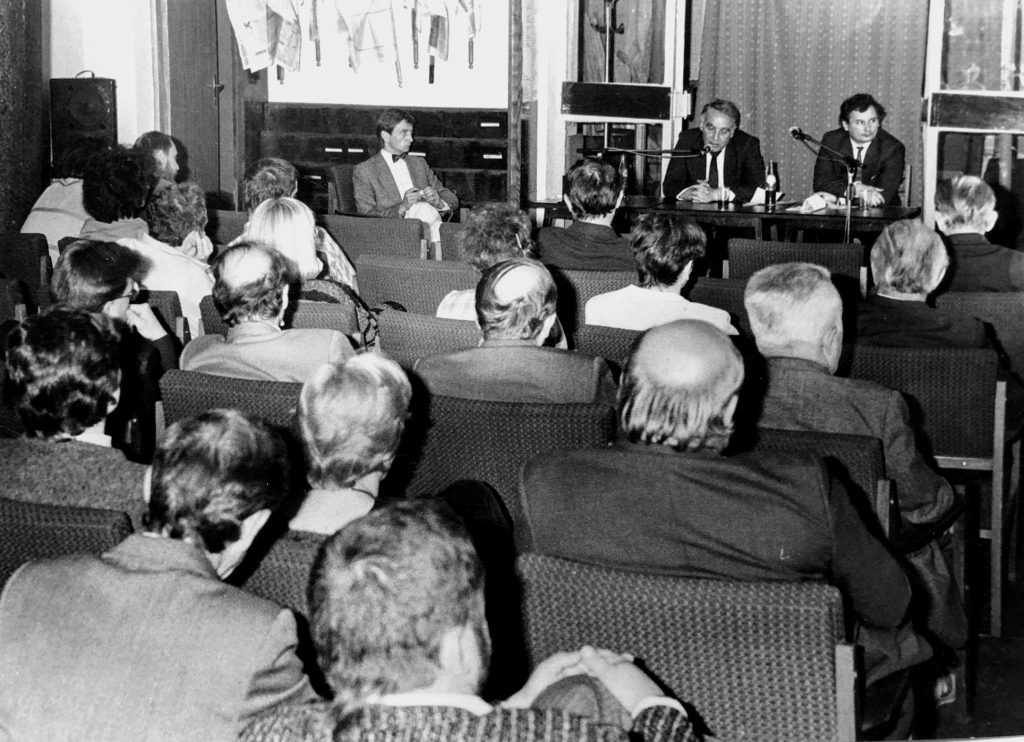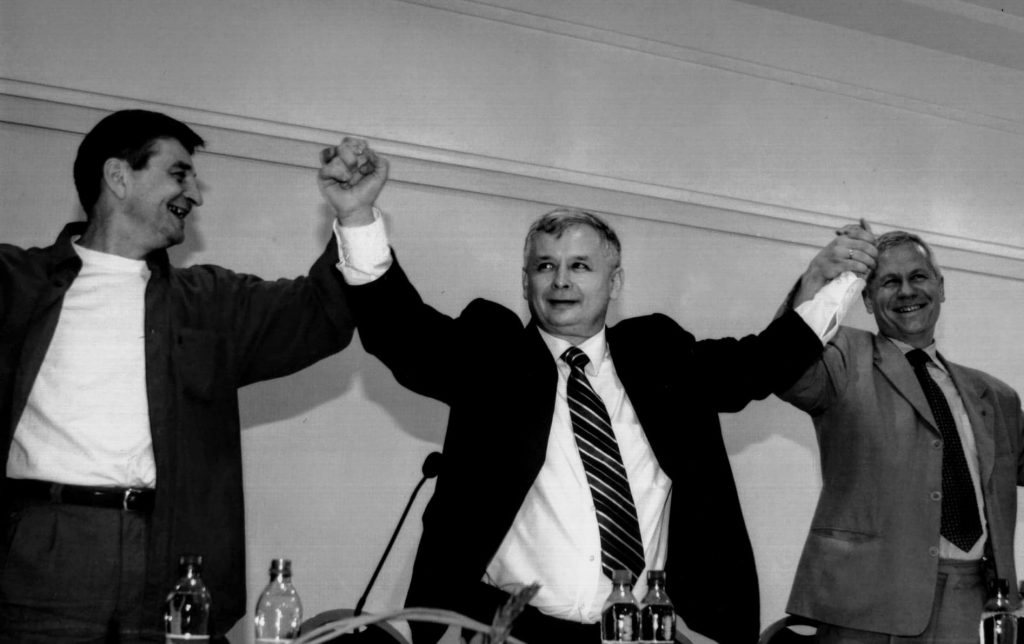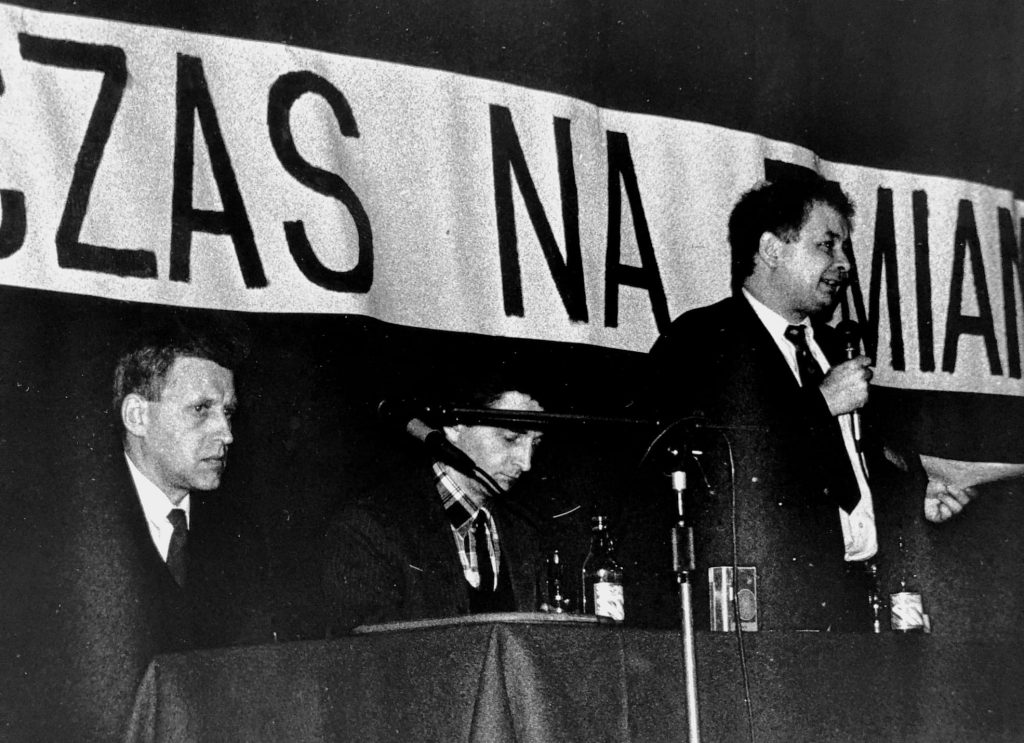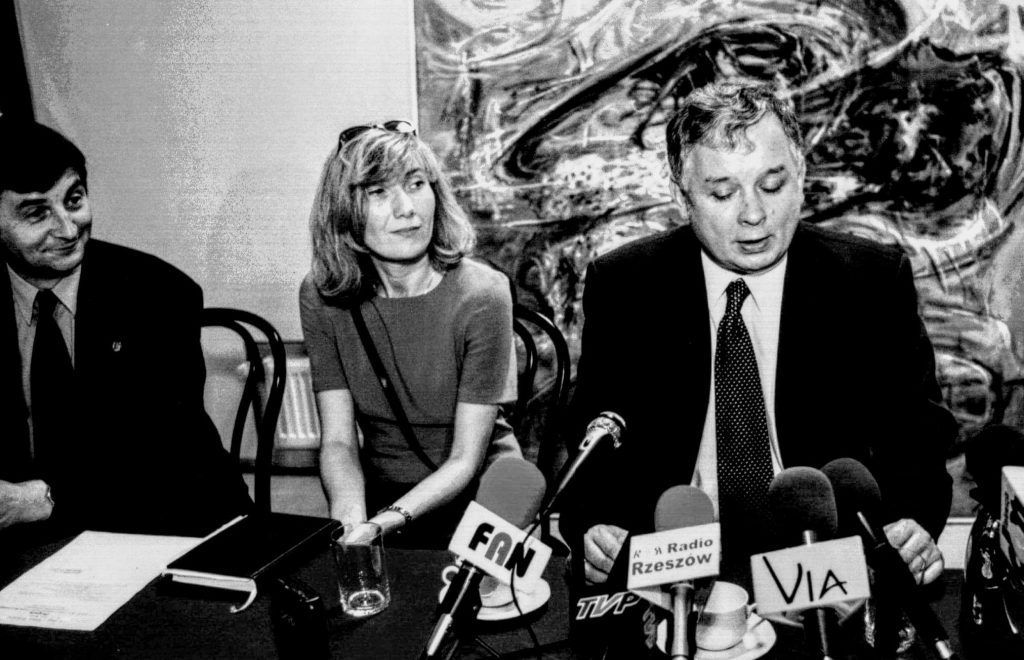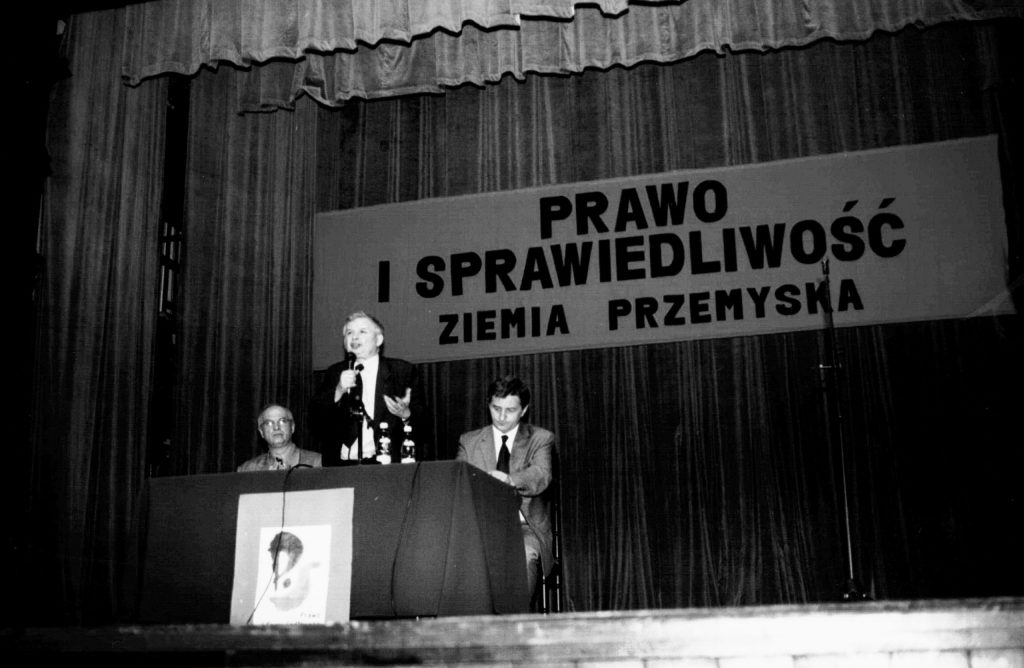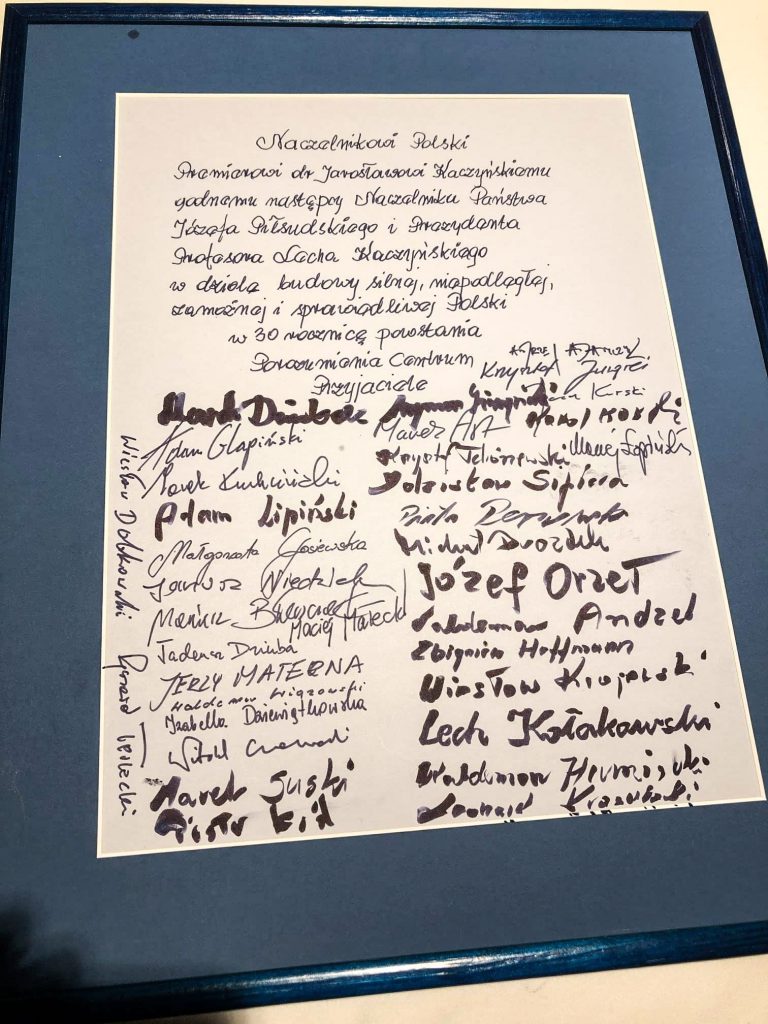32 years ago Jaroslaw Kaczynski cried out: "Time for change". It was then that the Alliance of the Centre was established. It took another two decades for some of its demands to be realized.
- When in 1989 we began the process of rebuilding an independent state, democracy and a free economy, most of us were convinced that our dreams had come true, we had a sovereign state and we were free. However, the shape of democracy that had been built from the beginning did not satisfy many of us. The economic sphere was full of pathologies, crime was on the rise, people felt increasingly insecure about losing their jobs. The lack of order, the growing group of the newly privileged, were all compounded by the helplessness of the state authorities. Honesty was losing, pathologies were winning. The law was losing," Marek Kuchciński recalls the times of a great breakthrough not only of decades, but also of Polish history and identity.
It is difficult to assess those times unequivocally today. When we look at them from the perspective of experiences gathered over the years, we see the extent of evil. Yes, the evil, which was eating away at the country, which was seemingly freeing itself from the communist tentacles of the liquidated PZPR. Enthusiasm for defeating the Party which held all the political, economic and cultural strings in its hands was genuine. Many people dreamed that things could only get better. Unfortunately, better was not for everyone. Just as not everyone who promised change kept their word.
It is well visible, among other things, when we take an honest look at the genesis of the Agreement of the Centre. Its main architect was Jarosław Kaczyński. Already then he accurately diagnosed political reality. The fragmented Solidarity party, divided into parties, factions and coteries, received a great deal of credit for its success. It was already visible during the elections to the contractual Sejm, i.e. licensed elections in 1989. PZPR trembled before the nation's anger, but it was counting on internal breakdown. Only that the aversion to communist power was much more important than the actual awareness of what values the party of freedom would bring with it to the Sejm. Jaroslaw Kaczynski speaking and writing about values was not listened to carefully. But he knew that in order to really change Poland, real power was needed. This is one of the reasons why he got involved in the campaign supporting Lech Walesa in the presidential elections. From today's perspective, this move is reproached to Kaczyński, from the perspective of that time: Wałęsa was the only widely accepted candidate on the side of Solidarity. With all his faults, his baggage of accusations, he could have taken the place after Wojciech Jaruzelski. Jaroslaw and Lech Kaczynski understood this and took up the challenge, which was really difficult for them personally. In order to see this in its fuller colors, however, one must understand what Porozumienie Centrum was. It was created on May 12, 1990. At a special press conference, in the building of the Grand Theatre, together with a group of activists, Kaczyński announced the declaration of the Agreement of the Centre. "On that day everything was supposed to change". - wrote the current head of Law and Justice in his book, and the fact that PC evolved into PiS is a testament to Jaroslaw Kaczynski's enormous consistency.
PC was founded in the hope that it would be a guarantor of the changes promised by Walesa. The agreement was built on two pillars, political and organizational efficiency and values. According to Jaroslaw and Lech Kaczynski, only an efficient party with a strong moral backbone can guarantee the reconstruction of the state.
- We created the movement on a foundation of immutable, hierarchically ordered principles. We believed that only they could most fully express the expectations of all those who prided themselves on belonging to the Latin culture of Europe. In Porozumienie Centrum there was no room for subordinating the citizen to economics, to liberalism based only on reason, because then everything could depend on changing views, could be relativized: today reason would give us one view, tomorrow a completely different one. And the adherence to collective thinking, some kind of cosmopolitan, impersonal vision, and the recognition of the state as the goal of action is fraught with the danger of what we have experienced over the past fifty years," remembers Marek Kuchciński.
It is worth mentioning here that it was a party actually based on local structures, so creating a program, changing based on what people in smaller towns need, not only in Warsaw. On 23rd July 1990, so two months after declaration, Regional Bureau of Porozumienie Centrum was established in Przemyśl. The Bureau consisted of: Jacek Borzecki, Boguslaw Dawnis, Zygmunt Grzesiak, Wojciech Kalinowski, Marek Kuchcinski, Wojciech Mikula, Pawel Niemkiewicz, Robert Rybotycki, Andrzej Wyczawski.
- Porozumienie Centrum should transform into a modern party, uniting apolitical currents of a democratic, popular and liberal-conservative character, united by a Christian hierarchy of values. This should be reflected in the name Christian-Democratic Agreement of the Centre - the signatories wrote in the introduction to the programme resolution.
It is fascinating to read this document. Especially in view of the current changes. Among the 15 points appeared one such: "Rebuild the insurance system in a comprehensive way. Verify the award decisions issued to people formerly employed in the apparatus of communist power. Many of these "pensioners" enjoy good health, work in the private sector or in trade, multiplying their money resources or simply lead a parasitic life".
It was not until the Law and Justice party came to power on its own, with Marek Kuchciński as Speaker of the Sejm, that a similar resolution could be passed, stripping the privileges of functionaries of the communist government apparatus.
Why was this unrealistic before? This process is well illustrated by the early history of PC, which we can tell through the prism of local structures in Podkarpacie. In February 1991, the Regional Office of the Centre Covenant in Przemysl set up the Civic Committee for Free Elections. It issued an appeal to the Civic Committees and the Przemyśl Solidarity movement to support this initiative. Zygmunt Grzesiak and Bogusław Dawnis signed on behalf of the regional PC office. The Coalition of Civic Committees of Jaroslaw and Przemysl was represented by Marek Kuchcinski and Bronislaw Niemkiewicz. As we could read earlier, PC had a clear program. There was a place in it for economy, ecology, agriculture, health service, changes in law of cultural institutions and a demand for vetting. In the first completely free elections in 1991, Porozumienie Centrum won 44 parliamentary seats. Later it supported the government of Jan Olszewski. In May 1992 Przemysl PC called for extending the Resolution of the Sejm of the Republic of Poland on the disclosure of SB and UB agents. It wants to make public "the full list of informers holding responsible positions in educational institutions, state institutions, workplaces and leading political, social, cultural organizations and mass media".
However, no real vetting took place. Olszewski's government collapsed. Walesa took the side of the parties that did not want a full account. Post-communist forces came back to power.
For the next few years, Porozumienie Centrum was a real opposition to the left-liberal changes that distracted the government from the country's real problems. PC politicians remained true to their principles. The alliances that allowed PC politicians to return to power within the camp led by AWS, however, did not provide a guarantee of real political changes in the country.
- The best recipe so far for uniting the forces of the Polish center and right wing was presented by Jaroslaw and Lech Kaczynski at the beginning of the 21st century. They responded to the unbearable injustice and the lack of order in Poland with the project of a great party, whose name was literally supposed to answer the question: what do Poles need? Law and Justice Party was formed in early 2001 on the wave of popularity gained by Lech Kaczynski. He served as Minister of Justice and Attorney General in the government of the Solidarity Electoral Action. The Law and Justice party, initially led by Lech Kaczyński, attracted people from the circles of AWS, Porozumienie Centrum, the Conservative-Popular Party, the Christian National Union, KPN, peasant organizations and the Polish Reconstruction Movement. What is important: the number of people who so far have not belonged to any political party grew rapidly. Christian Democrats and National Democrats together in the Piłsudski movement with a conservative identity. We did not create our program in an eclectic sense, but used elements to build a new quality. Since 2003 Jaroslaw Kaczynski has been the chairman of the party. At the 2nd Law and Justice Congress in Łódź in June 2006 he was re-elected party chairman', Marek Kuchciński recalls those times.
So this history comes full circle. It is only now that the postulates which so fired up people in the 90's are being realized. Now regions such as Podkarpacie, through their representatives in the PiS authorities and in the Sejm, can influence political changes in the country. The Agreement of the Centre was the structural beginning of...
M. Olejnik
